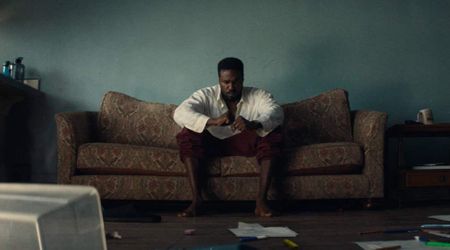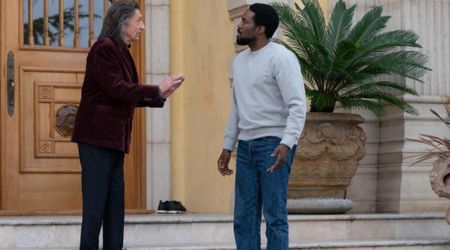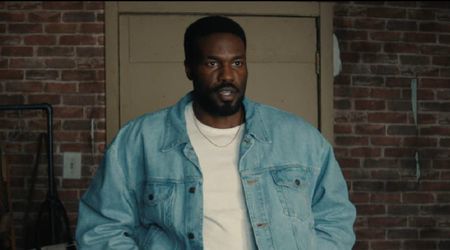'#SayHerName, Justice for Breonna Taylor': Black women face the most risk of sexual assault in police custody

At a time when centuries of racial injustice faced by the Black population in the US is taking center stage, several underlying issues are also coming to the forefront. Breonna Taylor, a 26-year-old medical worker was shot to death in her own home by the police on March 13. Yet, her death received very little attention until the death of George Floyd three months later sparked a wave of protests against police violence towards African Americans across the country. Most of the extensively covered stories of police violence have always involved black males. While Black women haven't been excluded from the narrative they have been rendered invisible, despite being long-standing victims of police violence.
'#SayHerName Justice for Breonna Taylor', a 90-minute news special by BET Her, addressed the issue of police violence specifically targeting Balck women, and the sexual abuse they face while in incarceration. It drew focus to the lack of awareness around Black women victims of police brutality and discrimination. The #SayHerName project also identifies police sexual assault of Black women as a pervasive issue.
It was launched in 2015 by the African American Policy Forum as a way to commemorate the black women and girls killed at the hands of predominantly White law enforcement. The movement against gendered police brutality, however, has a long and harrowing history. Black women's interaction with the state, through law enforcement, is one marred by violence.

Black women are assaulted, injured, discriminated and unlawfully arrested by the police. They are also tried, convicted and incarcerated for defending themselves against police violence. So the state violence against Black women has been a persistent and multi-layered issue, with little to no legal actions to protect them. In fact, the relationship between the state and Black was established on the grounds of violence through slavery in the colonial era.
The process of dehumanization and cultural stereotypes stemmed from the foundational years of interaction between Black women and White colonists. Now, Black women are subject to every type of law enforcement violence there is, the most extreme of which is death.
Black women fall victim to sexual assault at the hands of the police, which in itself is a complex matter on many levels. Many incarcerated Black women who are sexual assault victims at the hands of police, hesitate in reporting them to the police. To an extent, the realities of community relationships formed with the police have drastic effects on a Black woman's ability to gain legal protection when her assailant is a law enforcer.
The legacy of the lack of legal protection for the autonomy of a woman's body, much less a Back woman, still exists today. This ultimately renders them vulnerable, and largely invisible in the sexual assault conversation, particularly when the perpetrator is a police officer.

In 2016, former Oklahoma police officer Daniel Holtzclaw was convicted of raping 13 women while on duty over the course of six months. All of the women he assaulted were Black and he targeted them because he believed they were vulnerable. When they protested against his sexual advances, he would warm them that nobody would believe their account over the words of a police officer.
Holtzclaw thus generated fear and violated the incarcerated women, confident that he wouldn't be found out or arrested until one brave victim did exactly that. Holtzclaw isn't the only one in this matter, police across the country rape Black women and girls. According to reports from the American Civil Liberties Union, police officers can use consent as a defense against sexual assault of arrested or incarcerated individuals in 35 states.
Black women are also vulnerable to sexual violence because of intersectionality, a term coined by Kimberlé Crenshaw, which refers to the systemic oppression Black women experience based on their race and gender. In addition, White police officers continue to brand Black women as criminals or felons and over-police them.
According to the Sentencing Project, as of 2017, Black women are twice as likely to serve prison time as their white counterparts. Cases of police rape and sexual assault is an ongoing problem, but even otherwise, jail time poses a huge risk to the well-being of Black women. In 2015, Sandra Bland, a Black woman, was taken into custody by a state trooper for failing to signal a lane change. Three days later, she was found dead in her jail cell. The cause of her death is a subject of wide speculation.

Still, the fact remains that Black women are victims of sexual assault at the hands of the police, and victimization of these women has come to be accepted as normal. The relationship between the Black community and law enforcement is rife with mistrust and violence, that Black women don't really have the privilege of ignoring this reality whilst in prison, and when seeking help or protection from law enforcement.
'#SayHerName, Justice For Breonna Taylor' will premiere on Saturday, August 22, at 9 pm ET/PT on BET Her. An encore presentation will air on August 29 at 11 pm ET/PT on BET.










